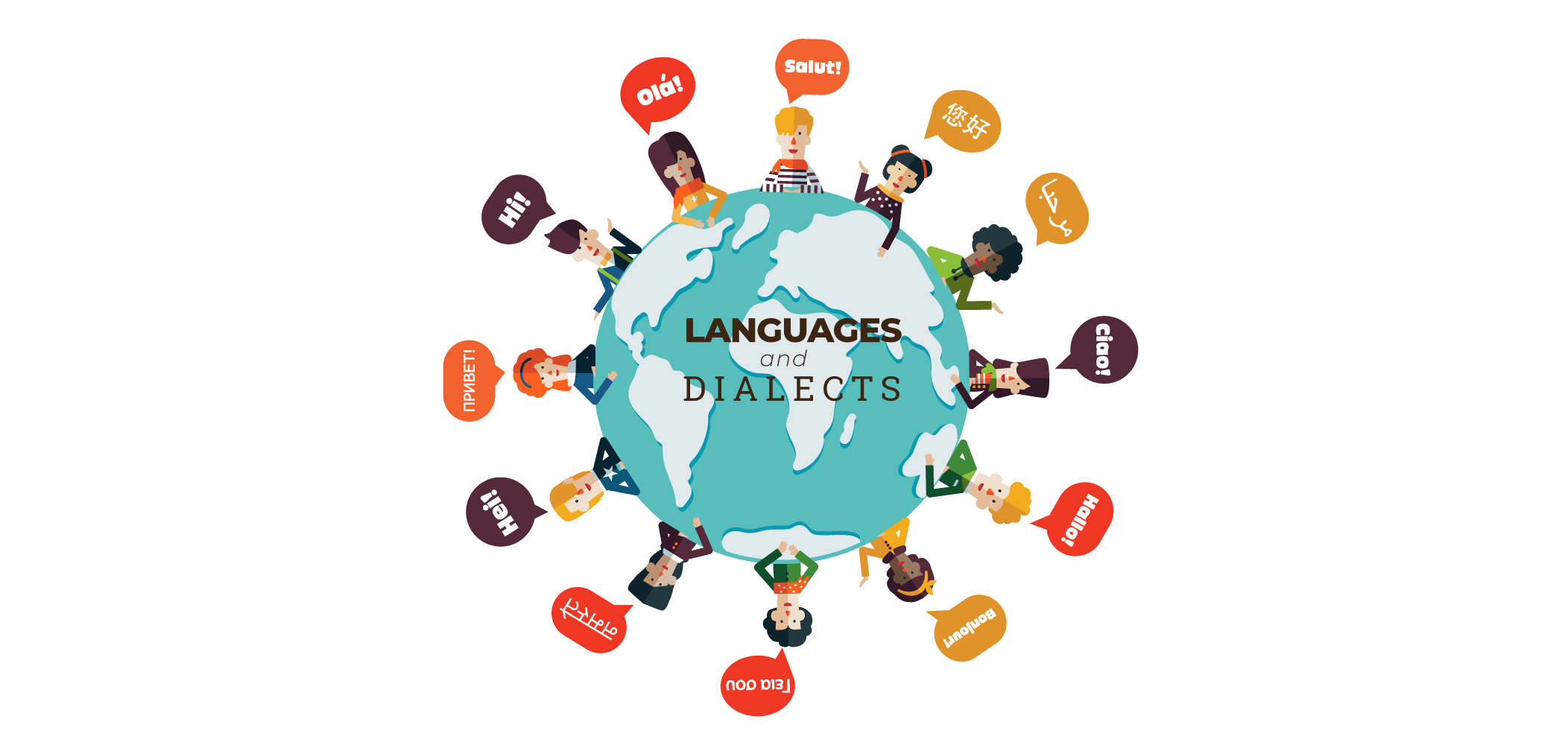If you’re a translator, you’re probably familiar with both terms, dialects and languages. You may also know why understanding the difference between them is important when you provide a translation or interpretation service. On the other hand, if you’re a client, it’s very likely that you consider both terms synonyms. As client, you may also be unaware why you should take this into consideration when looking for a translator.
In this article, we will help you get the perfect translation you’re looking for. Before we go any further with this, it’s important that we establish the difference between a dialect and a language.
According to the Oxford Dictionary of Current English, a language is defined as:
“The method of human communication, either spoken or written, consisting of the use of words in a structured and conventional way.”
This definition would include all communication systems, languages such as English, Spanish, French, German, Dutch, etc.
On the other hand, a dialect is defined as:
“A particular form of a language which is peculiar to a specific region or social group”.
This means that, whereas there are several countries that might speak the same language, their dialects will be different. As they are from a different region or social group, they might even have developed their own words and terms.
Why is it so important to know the difference between languages and dialects?
Let’s pretend that you are a successful businessman living in the UK and you’re planning to expand to Spain. In order to do that, you create a business proposal for a Spanish company, but you need it to be translated before presenting it. Fortunately, one of your employees lived in Argentina for 10 years and speaks fluent Spanish. He says he will have it ready in 2 hours! Seems like all your problems have been solved, right?
Well, think again.
Even if the differences between European and Latin Spanish seem to be minimal, they exist. The quality of a translation job relies on these small differences. Besides pronunciation, there is a variation between the terms used in European Spanish and Latin Spanish that is mainly influenced by Geography.
Since Latin American countries are closer to the United States, some terms, especially those related to technology, are derived from American words. In Spain, most terms are derived from the UK, or even other European countries. An example of this is the word “ordenador”, which is derived from the word “ordinateur” (FR); while in Latin American countries it’s often called “computadora”.
Even if the morphology of the word remains the same, its use can change depending on the country. Is it ok if your translation was meant for one Latin American country and then used for another Latin American country? Not precisely.
Does this happen only with Spanish?
According to the web, there are currently 400 million Spanish speakers in the world. Since many of those countries are located in Central and South America, it would be easy for us to assume that they all speak the same dialect. And, in a perfect, simpler world, they would be! But the truth is there is a lot of cultural and linguistic variations that can hinder the understanding of your translation—or even change its meaning completely!
No. This also happens with Brazilian Portuguese and European Portuguese, Canadian French and European French, Chinese (which includes Mandarin, Hakka, Cantonese, Traditional and Simplified Chinese), Japanese, Korean, and of course, European and American English.
The differences in these languages are also due to geography, the influence of other cultures and even history. Some of these differences can be minimal, while other differences, like Simplified Chinese and Traditional Chinese. These are so big that it would be hard for them to understand your written translation in the wrong dialect.
Next time you are looking to translate into any of these languages, keep in mind who your target readers are. Focus on where they’re from, who they’re influenced by and, most importantly, which dialect they use. You can also ask a translation company for help, as they have professionals that will get the job done in a professionally accurate manner.

